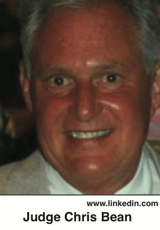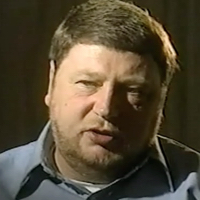Rascals case in brief
In the beginning, in 1989, more than 90 children at the Little Rascals Day Care Center in Edenton, North Carolina, accused a total of 20 adults with 429 instances of sexual abuse over a three-year period. It may have all begun with one parent’s complaint about punishment given her child.
Among the alleged perpetrators: the sheriff and mayor. But prosecutors would charge only Robin Byrum, Darlene Harris, Elizabeth “Betsy” Kelly, Robert “Bob” Kelly, Willard Scott Privott, Shelley Stone and Dawn Wilson – the Edenton 7.
Along with sodomy and beatings, allegations included a baby killed with a handgun, a child being hung upside down from a tree and being set on fire and countless other fantastic incidents involving spaceships, hot air balloons, pirate ships and trained sharks.
By the time prosecutors dropped the last charges in 1997, Little Rascals had become North Carolina’s longest and most costly criminal trial. Prosecutors kept defendants jailed in hopes at least one would turn against their supposed co-conspirators. Remarkably, none did. Another shameful record: Five defendants had to wait longer to face their accusers in court than anyone else in North Carolina history.
Between 1991 and 1997, Ofra Bikel produced three extraordinary episodes on the Little Rascals case for the PBS series “Frontline.” Although “Innocence Lost” did not deter prosecutors, it exposed their tactics and fostered nationwide skepticism and dismay.
With each passing year, the absurdity of the Little Rascals charges has become more obvious. But no admission of error has ever come from prosecutors, police, interviewers or parents. This site is devoted to the issues raised by this case.
On Facebook
Click for earlier Facebook posts archived on this site
Click to go to
Today’s random selection from the Little Rascals Day Care archives….
Click for earlier Facebook posts archived on this site
Click to go to
Today’s random selection from the Little Rascals Day Care archives….
Day-care prosecutors ‘become like a torturer’
Aug. 17, 2012
“I’ve wondered how the prosecutors (in ritual-abuse day-care cases) could live with themselves.
“Says Debbie Nathan (coauthor of “Satan’s Silence: Ritual Abuse and the Making of a Modern American Witch Hunt”): ‘There was a time – and it lasted eight or nine years – when there was an entire body of expert opinion that these things could happen.’ It was a time, she says, when pseudoscience had raced ahead of science, when best-selling books that had yet to be contradicted asserted that the inability to remember a trauma was the strongest proof of it, when doctors trying to be helpful established as a baseline a model virginal hymen so perfectly smooth and shaped that it allowed any actual hymen to be construed as traumatized.
“ ‘Our culture is still really atavistic,’ says Nathan, ‘but there’s an overlay of science on it. Mix the totally primeval stuff with science and you’ve got this mix that can’t be beat.’ Prosecutors, she says, ‘are just as naive as anyone else, but they also know how to sway people. They have all the techniques down pat. “Suffer the little children.” “Innocence defiled.” “Worse than murder.” ‘
“But why, as science and truth become clearer, is it so hard for so many prosecutors to recant?… ‘Maybe it’s because the whole process of constructing one of these innocent people as a really demonically evil sexual pervert who sadistically violates lots of kids – the whole process of constructing this character on a real person is torture. You have to be very invasive. It’s a very sadistic enterprise. You become like a torturer.’ ”
– From “Why Can’t They Admit They Were Wrong?” by John Conroy
in the Chicago Reader (Aug. 1, 2003)
You had to have been there (or did you?)
Sept. 25, 2013
“Peer group pressure… is a factor that should be considered when there is an allegation of sexual abuse involving multiple victims. Children in Edenton who never attended the day care, but who had peers who attended, claimed to have been abused at the day care.
“During her testimony for the defense, Dr. Maggie Bruck described a scientific study in which two actors went into a classroom of 28 children to give a talk. During the talk one of the actors knocked a large birthday cake off a piano. Seven children had been removed from the room and did not observe the event. Later when the children were interviewed six of the seven children who had not been present not only claimed to have been there but described the event as if they had been present.”
– From “Evidence Issues and ‘Lessons’ from State v. Kelly: Litigation of Allegations of Child Sexual Abuse” by Jeffrey L. Miller and W. Michael Spivey, presented at the 6th annual North Carolina Criminal Evidence Seminar, UNC School of Law (April 16, 1993)
Whatever happened to Kelly’s ex-lawyer? This….
 Nov. 8, 2013
Nov. 8, 2013
While we await Gov. McCrory’s decision on whether to promote Nancy Lamb to district attorney, another key figure in the Little Rascals prosecution is stepping aside.
From the Elizabeth City Daily Advance:
EDENTON – Judge Chris Bean, chief district court judge in the 1st Judicial District, does not plan to seek re-election to another term.
Bean, who has been a judge for more than two decades, said recently he plans to step down when his current term ends in December 2014.
“I have been doing this for 20-some years,” Bean said. “It has been a fascinating career.”
Unmentioned by Judge Bean (or by the Advance, which seems to have purged Little Rascals from its memory) is his deeply prejudicial testimony against former client Bob Kelly.
Bean and Lamb have continued to share an immunity to just consequences. (Compare the enormity of the Little Rascals prosecution with the penny-ante misconduct that typically brings about disbarment in North Carolina.)
Only their innocent victims – the Edenton Seven, the child witnesses – paid a price, and it was a high one indeed.
Beware of jurors wearing deerstalker caps

pbs.org/wgbh/frontline
Dennis T. Ray
April 10, 2016
“(Daniel Green’s) Durham-based defense team says it has new evidence that challenges major parts of the prosecution’s case, while bolstering their request for a new trial. They claim that misleading testimony and misconduct by the prosecutor and jury helped send Green to prison for (the 1993 murder of James Jordan) he did not commit.
“The evidence outlined in court documents includes… a sworn statement from the jury forewoman who admits she did her own investigation of Jordan’s murder, which violated a judge’s order. Paula Locklear says that during the trial, she visited the South Carolina creekside where the body was found and developed her own theory on how the killing occurred. A Charlotte legal expert says her action amounts to a ‘tremendous problem’ for the original case and could get Green’s conviction overturned….”
– From “New questions raised in slaying case of Michael Jordan’s father” by Michael Gordon and Mark Washburn in the Charlotte Observer (April 9) (cached)
Sound familiar? It should! As a juror in Bob Kelly’s trial, Dennis T. Ray not only conducted his own “crime” scene surveys, but also shared a Cosmopolitan article about how to identify child molesters, relayed incriminating claims from a jailhouse snitch and even displayed a supposed “magic key” described by child witnesses.
Unfortunately, Judge Marsh McLelland didn’t consider Ray’s rogue behavior – or that of a second juror, who dramatically revealed during deliberations that he himself had been abused as a child – to be a “tremendous problem.”
In fact, McLelland found precious few reasons to take issue with the prosecution’s case.
![]()











0 CommentsComment on Facebook